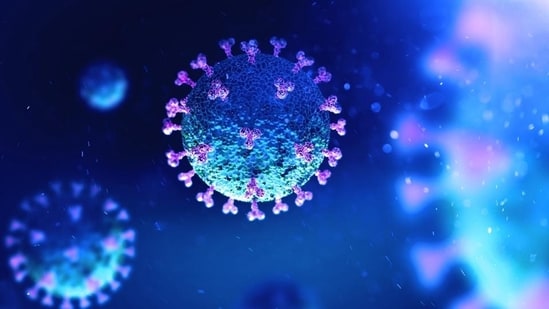Blood
Brain fog after Covid-19 linked to blood clots, study reveals
A recent study suggests how blood clots formed during COVID-19 can cause brain fog and fatigue.
A recent study carried out in the UK stated how blood clots formed in the brain or lungs can be symptoms of “long Covid”, including brain fog and fatigue.
The research was carried out on 1,837 people who were admitted to the hospitals due to Covid. The results stated that two blood proteins point to blood clots being a cause.
The formation of these clots prohibits 16% of such people from thinking clearly and concentrating. Additionally, it can cause memory loss of at least 6 months.
Professor Paul Harrison, from the University of Oxford, explained how identifying predictors and possible mechanisms was a “key step” in understanding post-Covid brain fog.
Adding to this, Chris Birghtling, Professor of Respiratory Medicine at the University of Oxford explained how there can be different causes that lead to “long Covid.”
“It’s a combination of someone’s health before, the acute event itself and what happens afterwards that lead to physical and mental health consequences,” he said.
A Covid-19 study in Nature Medicine, post-hospitalisation blames higher levels of protein fibrinogen and protein fragment D-dimer for brain fog.
Dr Max Taquet, author of the study, from Oxford, said: “Both fibrinogen and D-dimer are involved in blood clotting and so the results support the hypothesis that blood clots are a cause of post-Covid cognitive problems.”
The symptoms one can look out for are extreme tiredness, short breath and difficulty focusing on stuff, post a COVID-19 diagnosis.
University lecturer Dr Simon Retford shared his experience, saying he spent two weeks in a coma after being diagnosed with Covid in October 2020.
Though with time he has regained functionality, he stated how he still has problems concentrating, short-term memory loss and a slow thought process. The lecturer used to work for the police earlier but is unable to do so now.
“I took on a course-leader role last May and I was like a really slow computer which struggled to get going,” he said.
However, researchers think of this study as the first step in the right direction, as more research has to be carried out before the recommendation of any medicine or potential treatments.
The same study was carried out in US hospitals and has given similar results, supporting the study.

